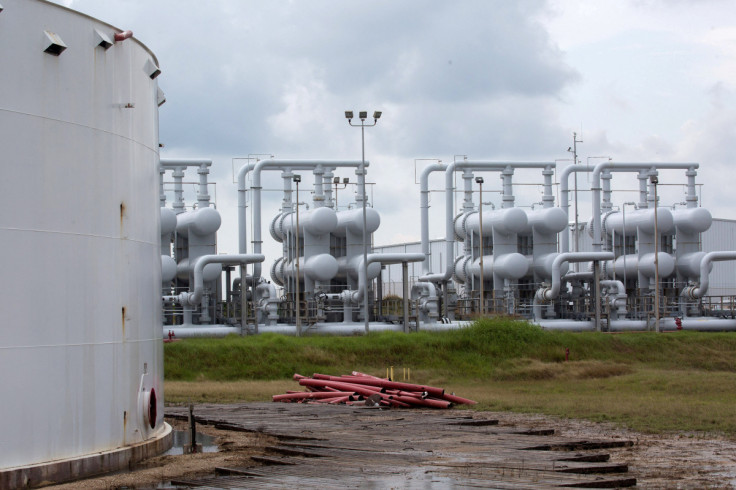Russia-Ukraine War, Fracking Turn America Into The World's 4th Largest Crude Oil Exporter
The rise of the fracking industry and the persistence of the Russia-Ukraine war have helped the U.S. economy become the 4th largest exporter of crude oil in the world in 2022.
That's according to Athens-based oil analyst and a Greek Chamber of Commerce member Theophanis Matsopoulos. "The total U.S. energy products exports in 2021 were 134 million tons," he told International Business Times in a phone interview. "In the first nine months of 2022 alone, exports skyrocketed to 120 million tons."
Matsopoulos believes that the critical driver behind these export gains is the tension between the European Union (EU) and Russia regarding the war in Ukraine, which pushed the EU to find alternative fossil fuel suppliers to cut the long-lasting energy dependence on Russia.
"The war resulted in Europe becoming a significant energy importer of U.S. oil, accounting for 42% of the total U.S. exports, showing an increase of 52% on a y-o-y basis," Matsopoulos added. "In comparison, 45% of the exports went to the Asian markets."
Matsopoulos thinks that this rapid expansion of America's exports could give the world's largest economy the title of the "global winner of the oil war," reaffirming its strategic leadership position since the Second World War. "The increased supply of oil to the global market combined with the provision of quantities to the EU has recharged the relationships of the superpower with many allies, especially those in Europe," he said.
Kunal Sawhney, chief executive officer of Kalkine Group, provides further insight into the meteoric rise of U.S. energy exports. "After Russia invaded Ukraine, the U.S. oil industry sprang into action, pressuring the Biden administration to allow domestic drilling and relax certain regulations so that companies can extract more oil," he told IBT. "The sector is now trying to capitalize on and tap the market created by Russian isolation. As a result, more companies are asking the government to allow drilling on public land by easing regulations to expand the market."
Still, the improvement in the U.S. trade balance that followed the surge of energy exports is a mixed blessing for the U.S. economy. On the positive side, the narrowing of the trade deficit helped the U.S. economic growth come out better than expected in the third quarter, preventing the world's largest economy from sliding into a recession. However, on the negative side, strong energy exports helped keep energy prices elevated, feeding into the surge of inflation that has been squeezing family budgets in the last year.
Can the U.S. fracking industry keep up with rising exports? Sawhney thinks so.
"There is plenty in the U.S. to extract, and companies now want to make the most of it to become the largest oil supplier in the world after Russia faces a boycott after the war," he said. "In places like Alaska, companies see immense opportunities to drill. Although there may be opposition from environmental groups to excessive drilling, large organizations are pushing for more active ways to pump oil."

© Copyright IBTimes 2024. All rights reserved.












